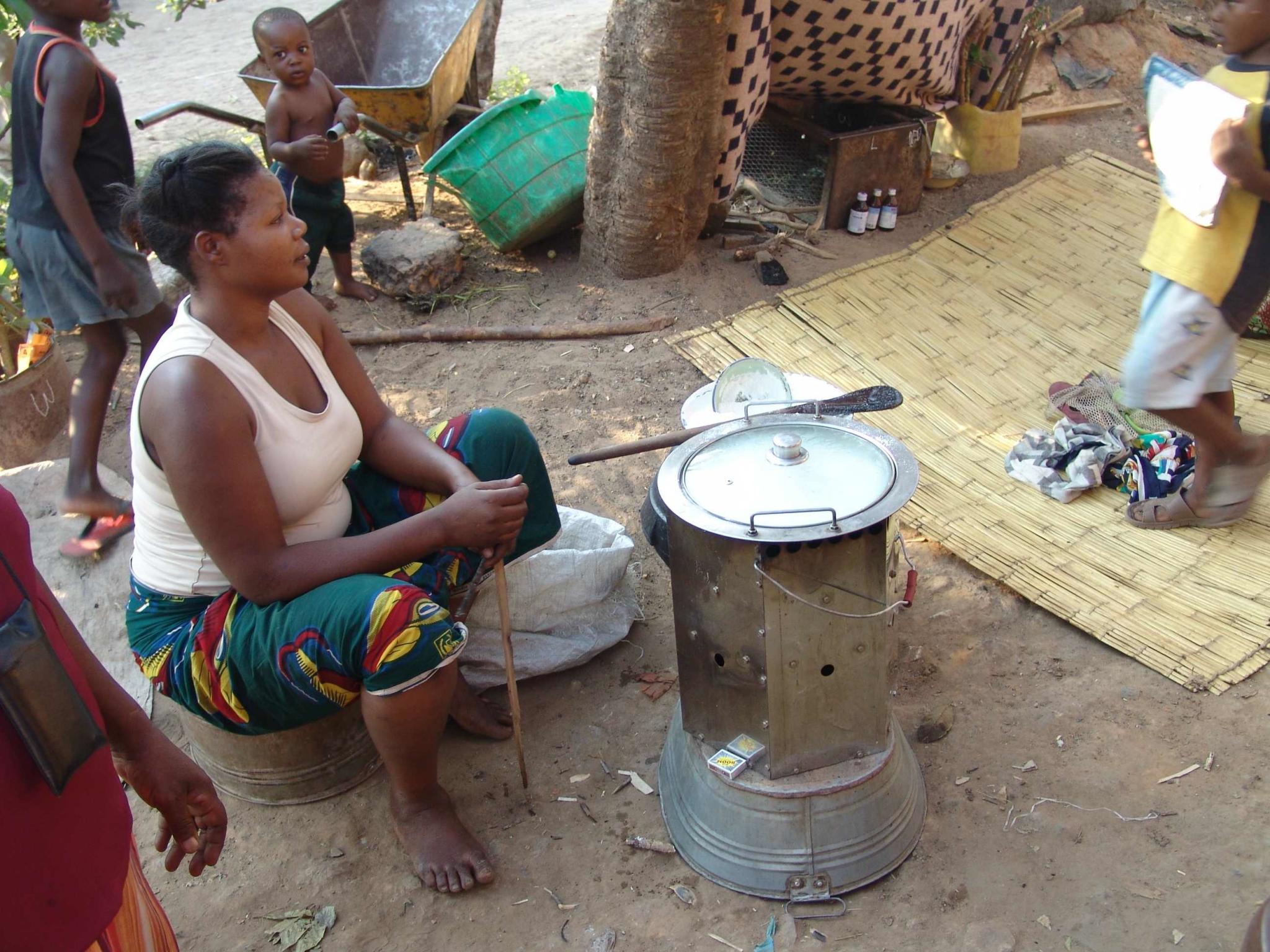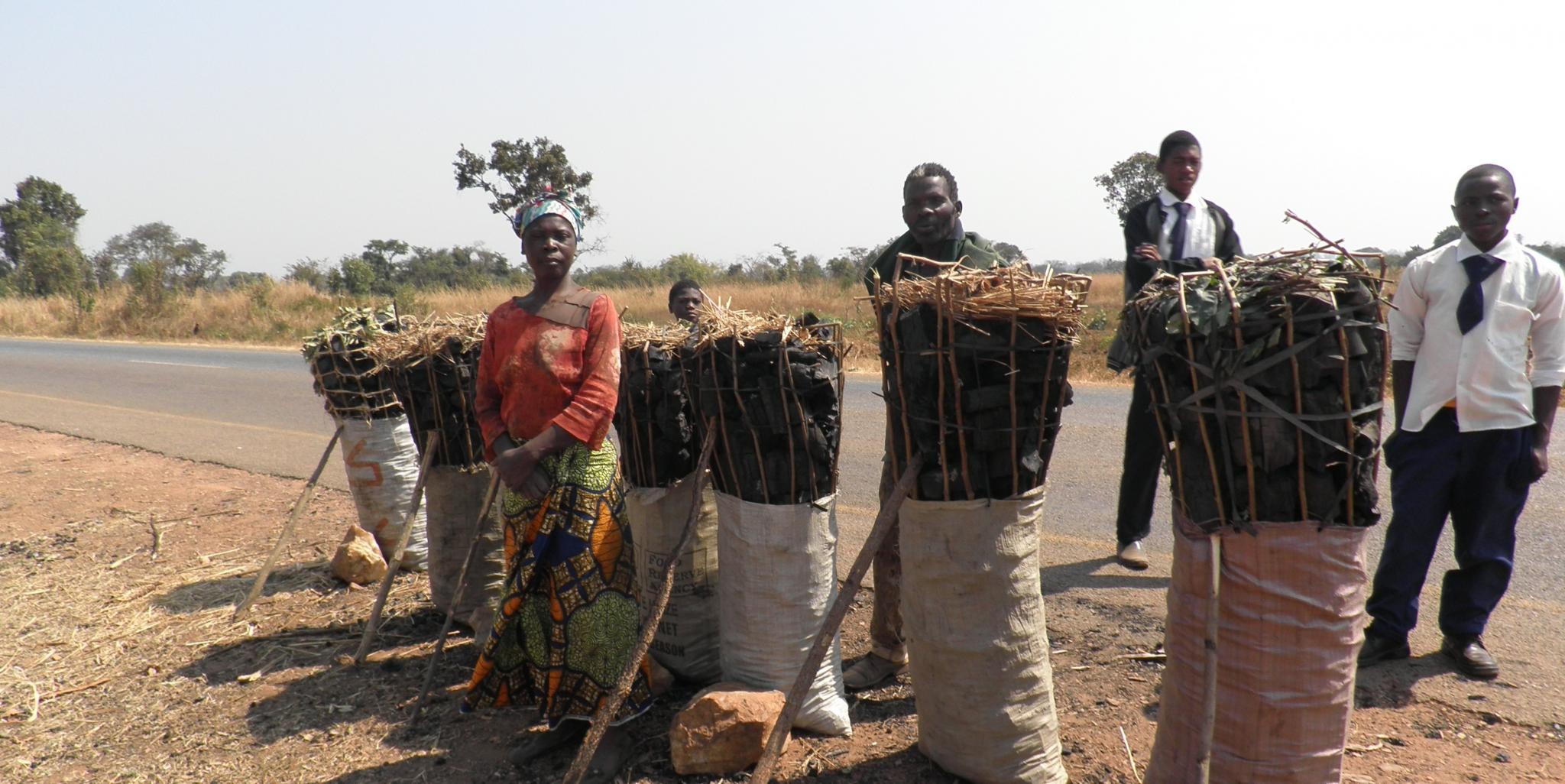In urban Zambia one initiative for sustainable energy provision has been the introduction of micro gasifying cook stoves and sawdust pellets to replace cooking on charcoal. From 2010 onward several commercial companies – with various organisational structures – have been trying to market these stoves to low-income households, with varying degrees of success.
Dr. Pesa from the Leiden-delft-Erasmus centre for Frugal Innovation in Africa worte a paper in which he explores the value chain dynamics of improved cook stove initiatives to see whether organisational set-up influences stove adoption and market penetration. It is argued that initiatives to market improved cook stoves can, paradoxically, learn a lot from the existing charcoal value chain and its marketing structure. Improved cook stove initiatives have to be understood within a technical, social and economic context, as people, markets and locality matter and one size does not fit all.

Zambian urban cooking has been dominated by charcoal (malasha) and iron braziers (mbaula) since at least the 1930s. Even if among some wealthier households cooking on electricity has gained sway, charcoal braziers are still retained as a backup in case of electricity outages and for cooking ‘slow’ dishes, such as beans or dried fish. Nonetheless, due to the health hazards posed by indoor air pollution and the environmental effects of high levels of deforestation, charcoal use has started to receive severe criticism from various ‘social innovations’, which have aimed to substitute charcoal with sawdust pellets and micro gasifying cook stoves. Although improved cook stoves (ICS) have been tested and disseminated in Zambia since the 1970s, a new impetus was given from 2010 onward when the combination of sawdust pellets and micro gasifying cook stoves was first successfully marketed (Interview with Mattias Ohlson, Lusaka, 01 October 2014).
Several commercial companies – in collaboration with NGOs, charity foundations, donors and government institutions – have been trying to market this technology to low-income households, claiming environmental, health and financial benefits upon adoption (Interview with Samuel Bell, Lusaka, 05 October 2014). The introduction and promotion of ICS has been framed within discourses of ensuring ‘Sustainable Energy for All’ at the ‘Bottom of the Pyramid’ [www.se4all.org]. These initiatives can be seen as examples of ‘social entrepreneurship’, as they create ‘new models for the provision of products and services that cater directly to basic human needs that remain unsatisfied by current economic or social institutions’. Because ICS promotion primarily aims to create social, rather than purely economic, value, it requires novel business models, organisational structures and strategies. ICS promotion necessitates social innovation, which entails multi-stakeholder partnerships, networks and value chains, as well as innovations in organisational form and operational models. > Read the full article

Author: Dr. Peša has been a post doc researcher at the Leiden-Delft-Erasmus Centre for Frugal Innovation in Africa from 2014 to 2016 and is currently working at Oxford University.
Article was published in: Sustainable Energy Technologies and Assessments. Volume 22, August 2017, pp. 171-176.
Title: Sawdust pellets, micro gasifying cook stoves and charcoal in urban Zambia: Understanding the value chain dynamics of improved cook stove initiatives. Sustainable Energy Technologies and Assessments.
